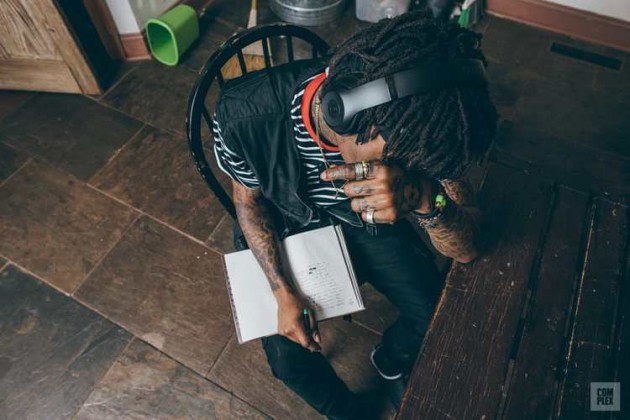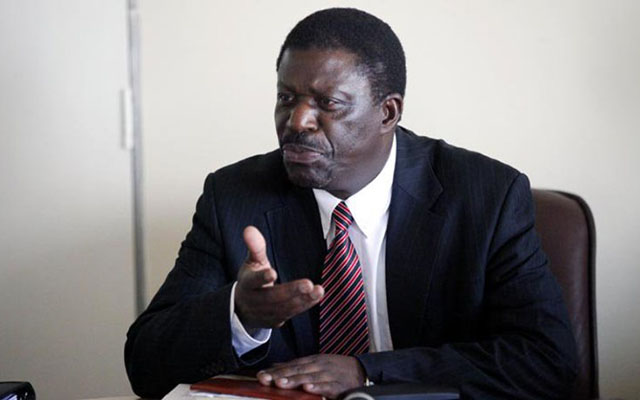The struggle to discipline a Diaspora child

Tyrell, the teenager from London had short dreadlocks and always had big headphones covering his ears, listening to music from his phone
Sekai Nzenza on Wednesday
We saw the teenager from London in the village at Christmas. His name is Tyrell. He is the son of my cousin Reuben’s friends. Tyrell is 16. He was only three when his parents left Zimbabwe for the UK. He had never been to their village home in Buhera, across Chinyika River from our village.
Since the family was in their rural home for Christmas, we asked them to join us for a goat-roasting meal with everyone else visiting from the Diaspora. They arrived with some of their relatives, including Tyrell. This boy was tall and skinny, with short dreadlocked hair sticking out of his Liverpool FC cap.
He wore baggy jeans and a black jacket. He had big headphones covering his ears, listening to music from his phone. When people greeted him, he shook hands and made a grunting sound. He mumbled when he wanted more food and drank something from a blue plastic cup.
“Ko, mwana wenyu akaita seiko uyu? Haataure?” asked Piri, pointing to Tyrell, who sat on a rock near the homestead fence, not speaking to anyone. By this, she was asking if there was something wrong with Tyrell.
“He is a child brought up in the Diaspora,” said my niece Shuvai, the one who lives in America. These children behave funny. They can be very hard to discipline. You cannot point to the Diaspora alone. Here in Zimbabwe we find children who are just as difficult,” said Reuben.
“But, looking at this one, he looks possessed by a bad ancestral spirit,Why did you take him to the UK? There are some children who should never leave this soil. Are you taking him back there?” she asked.
The parents looked at each other and gave signs to say, let us not talk about Tyrell now, please. We understood. As if to make light of the conversation, Piri then joked saying Tyrell was a difficult name to pronounce. A new name must be found for the boy who looks possessed. Anenge akagarwa.
“Mwana uyu anonzi Kusvika Mati Sorry,” said Piri, meaning this child’s name is called Kusvika Mati Sorry. Piri then shorted the nickname to Matisori. Everybody had a good laugh at the name, which means until you say sorry.
A few months back, Piri and I had seen the words “Kusvika Mati Sorry” on a kombi at a garage in Macheke. I asked the kombi driver why he had such words on his kombi. He said the story behind the words had something to do with a wrong doing that required an apology.
The person who committed the offence was being punished for the wrong doing until he makes the decision to apologise by saying, I am sorry. We all thought Piri’s nickname for Tyrell was a joke, but later on, when the parents told us their struggles with Tyrell, we realised that bringing up a child in the UK or anywhere else outside Zimbabwe has not been easy for some parents.
Sometime later, everyone was more relaxed and a group of us women sat together under a mango tree while the men stood by the bar-b-que stand, roasting goat ribs, drinking beer and talking about politics in the new Zimbabwe. Then Piri decided to ask about Tyrell again.
“So, what happened to your son?” Piri asked Mai Tyrell. Before Mai Tyrell could answer, I quickly told Piri to stop asking too many questions. There is something called confidentiality, especially regarding children. I said Mai Tyrell did not have to talk about her son in front of us.
But Mai Tyrell shook her head and told us that talking about her son could help relieve her burden.
“Mwana uyu muyedzo kwandiri,” she said meaning the child was like an ongoing trial or temptation. She then narrated her story, which was all too familiar to parents who are struggling to bring up children in the Diaspora.
Tyrell is not his real name. His real Shona name is Tanyaradzwa, meaning we have been comforted. Everything seemed fine with Tyrell until he turned 12 and started behaving like he was over 18. Tyrell declared that he did not like his Shona name because in England, Tanya is a girl’s name. His new name was Tyrell and if they called him Tanya, he would not answer.
Then Tyrell joined a group of West Indian kids at his school. They would hang around the parks with skateboards, some of them smoking. The group included other children from different nationalities including Croatian, Serbian and Nigerian.
One day Tyrell came home late and his father hit him with a belt. Tyrell said if that happens again, he would report his father to the police. In England, it is against the law to beat up your own child. You can go to jail for that offence. On another day, Tyrell spoke rudely to his mother and his father twisted his ears, saying this is how he was disciplined by his own father when he was growing up in the village.
“But dad, we are not in the village now. You have no right to twist and damage my ears like that?” Then the father said he would get a proper belt and thrash him. Tyrell locked himself in his room. He phoned his friends from the group and seven boys arrived at the door, demanding to “rescue” Tyrell from his father.
The father told them to leave. The boys called the police saying Tyrell was being imprisoned in his father’s house against his will. It was time to set Tyrell free and take him to a safer place, possibly a foster home with kind English parents. The police arrived and took Tyrell’s father to the police station. He came back a couple of hours later with no charges laid against him. But he was given a warning not to physically discipline his son.
For the past three years, Tyrell had been doing just what he wants. He goes to school when he feels like it and nobody can do anything to him. His older siblings, who are already at university, tried to reason with him but they did not achieve any results.
The family then made the decision to bring Tyrell to Zimbabwe for Christmas. At first Tyrell said he would not go to Africa at all. He called Zimbabwe many bad names that he had heard from his friends. The image of Zimbabwe since land reform had not been good in the British media and internationally.
After several discussions and promises of various gifts, Tyrell agreed to come along with the rest of the family. When they arrived at their uncle’s house in Harare, Tyrell said the place was crowded and he demanded to have his own room. He hated Zimbabwe and wanted his passport and ticket to go back home to England.
His father, now feeling strengthened with the support of his sister and brother, told Tyrell that the freedom to do as he pleased in the white man’s country was over. He was home now and he would abide by the rules. By the time they arrived in the village for Christmas, Tyrell was not talking to anyone. He had headphones glued to his ears all the time.
“This child is possessed by a bad spirit. He will harass you forever. Leave the child here with your uncle,” said Piri. I was not sure that was the way to handle this child. It was not his fault that he had been brought up in a foreign country. Here in Zimbabwe, some children from good homes also behave like Tyrell. Peer pressure and possibly lack of time with the parents can result in such behaviour.
“Jesus is the only solution for this child. Send him to a Christian school where he will learn to be human again,” said Mai Tyrell’s cousin from Gutu. Others agreed that a Christian school would cure Tyrell of his British hooliganism. Tyrell did not go back to the UK with his parents. They left him under the care of an uncle, who teaches at a boarding school somewhere in the eastern part of the country.
Since term started, we heard that Tyrell is beginning to talk to other students and even saying, “Yes sir,” when addressed by the teacher. Should difficult teenagers from the Diaspora be sent to rural boarding schools where there is strict discipline? Perhaps. We hope that one day Tyrell will revert to his Shona name and apologise to his parents for his behaviour. Pamwe rimwe zuva achati sorry.
- Dr Sekai Nzenza is a writer and cultural critic.









Comments